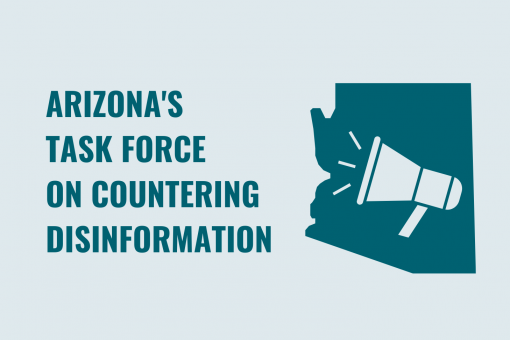At NCSC, we recognize that people, organizations and entities, both foreign and domestic, instigate disinformation to undermine public confidence in our country’s institutions, including the judicial system.
Common disinformation themes
Disinformation attacks often seize existing and sometimes legitimate critiques of the judicial system, but grossly distort them to denigrate the system and enrage skeptics. Currently, there are four prevalent themes that are routinely used by foreign actors, often amplifying domestic voices, seeking to undercut faith in the judicial system.
- The justice system tolerates, protects and covers up crimes committed by immigrants
- The justice system operationalizes the institutionally racist and corrupt police state
- The justice system directly supports and enables corporate corruption
- The justice system is a tool of the political elite and is therefore illegitimate
Additionally, the following themes are examples often used domestically to promote disinformation.
- The justice system unfairly favors white defendants and consistently provides white defendants with more lenient sentencing
- Male judges are insensitive to female litigants
Recent events are driving new and even more dangerous political themes, including the following:
- The justice system ignores voting irregularities and fraud allowing elections to be stolen from certain candidates
- The justice system tips the electoral map in favor of a particular party
- The justice system is unaccountable. Therefore, judges should be subject to threats of violence to keep them in line
- Decisions by the court are political and can be leaked for political purposes
Whether one believes any of these assertions - or statements to the contrary, which can also be weaponized for misinformation or disinformation purposes - the danger lies in letting them circulate unchallenged.
Building resilience against disinformation
Every court will likely have to respond to a disinformation challenge at some point. To build resilience against impending challenges, courts need to establish credibility by routinely communicating with the public and media (online and in-person) and educating the public and the media about judicial concepts, like due process, fairness and judicial independence. By communicating regularly, imparting knowledge and building relationships, courts can be better situated to combat disinformation when it arises.
Guidelines for countering disinformation
Every disinformation challenge is different and requires creative thinking to counteract. However, several best practices for dealing with disinformation have emerged over time. These include:
- Be accurate. At the state level, disinformation related to the judicial system feeds off exploiting any inaccuracy or mistake to cast the court in the worst possible light. Check facts with multiple sources before citing them publicly.
- Lead with facts. Focus on providing accurate facts and do not lead or repeat false messages.
- Develop a simple, accurate, short counter-message. Avoid complex messages. Develop a clear statement that contains the facts. Speak plainly.
- Be visual. False information on social media is often compelling because it is paired with engaging images. When appropriate, release the message with a compelling image or well-designed graphic that captures attention. For example, judicial procedure explained through an infographic or flowchart will be more accessible than through legal jargon.
- Establish a verified voice. Use social media platforms, like Facebook and Twitter, to regularly point to where the public and media can find reliable information on court operations.
- Respond quickly. Disinformation can spread rapidly. A counter-message should be ready to disseminate as soon as possible.

Innovation spotlight: Arizona's Task Force on Countering Disinformation
Since 2019, NCSC has been working with courts across the nation to raise awareness about the threat of disinformation to our democracy. Our work with the Arizona Supreme Court helped lead to a report released in March 2022.
The report provides guidance complete with 27 recommendations on how courts can support public confidence by providing timely information and responding to disinformation.
Read the full report and access additional materials.
Resources and additional information
- Manage the Message Media Guide by the Conference of Court Public Information Officers (CCPIO) and the National Association for Court Management
- “Court Communications for the Disinformation Age”
- “Combating Disinformation: A Direct Threat to Our Justice System and Democracy,” presentation
- eCourts disinformation presentation
- “What Happens (In Our Courts) When America Votes?” video, third in a video series titled Election Safeguards for the Judiciary
- “Beyond the Ballot: How the Kremlin Works to Undermine the U.S. Justice System,” report, Center for Strategic and International Studies
To request a copy of the “Combating Disinformation: A Playbook Template for State Courts” publication, contact NCSC’s Communications and Online Media Department.
